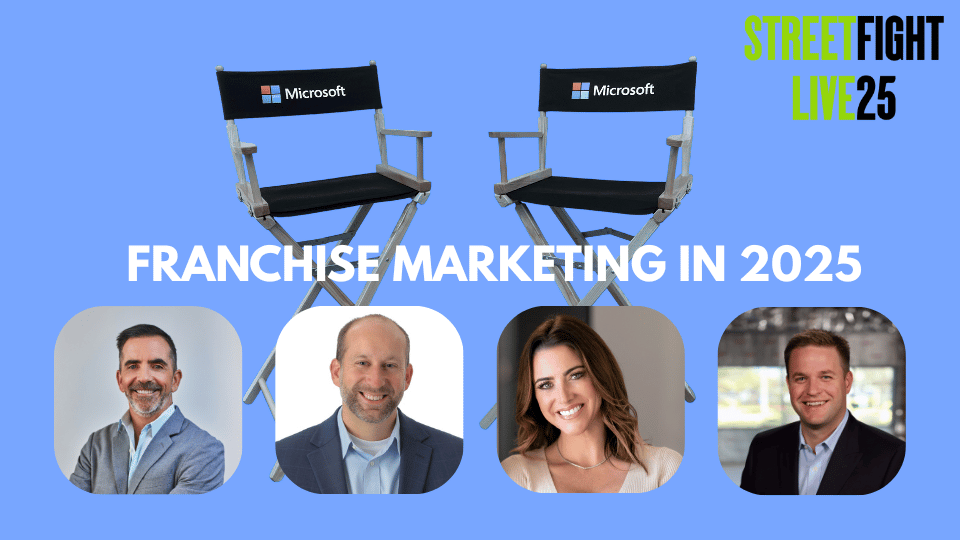One of the companies at the fringe of Localogy’s coverage is WhatsApp. It’s important because of its escalating work in SMB conversational commerce. Indeed, its path to monetization largely involves businesses that use it to message users for marketing or customer support, and it’s well on its way.
Another reason WhatsApp is noteworthy is its positioning under the Meta umbrella. Meta’s gravitational pull makes the above positioning that much stronger in supporting SMBs. Meta has established self-serve and agency-driven channels for Facebook Ads, Instagram, and its hidden gem: Marketplace.
With all that in mind, our radar is always up for WhatsApp updates. And a sudden stream of company news has recently crossed our desks and reached critical mass. So we’re taking this opportunity to check in with the company, in the form of a breakdown on its latest moves and how the dots connect.
Blue Checkmark
First on our list of WhatsApp updates is SMB verification. After doing similar on Facebook last fall, Meta is staying true to its promise that verification would be coming next to WhatsApp. It will first be available to WhatsApp Business users in test markets (Brazil, Indonesia, and Columbia) for $14 per month.
Backing up, the thinking here is that user verification has become a trend across X and Meta. But it makes even more sense for businesses. This has been a bit of a controversial topic since Elon Musk first bought X and famously flipped verified status to something that was bought rather than earned.
But since then, Meta has picked up the idea with a more practical spin. By verifying businesses, it can offer them validation. And the cost of admission – $22 on Facebook and $35 to bundle Instagram – is basically a maintenence fee to validate the business and to keep the mark of authenticity in place.
Meta also realizes that if there’s any segment that needs to instill trust and verification, it’s SMBs as they often don’t have the benefit of nationally-recognized brand equity. So rather than spend time establishing prominence on Facebook to earn the checkmark, they can fast-track it by buying it.
Beyond a fast-track to validation, SMBs also get a few other perks like impersonation protection, and greater reach. The latter involves better search rankings within Facebook, as well as preferred placement in a new “Recommended Meta Verified Businesses” carousel in the News Feed.
All the above applies to the program’s dynamics on Facebook and Instagram… but we invoke them in this WhatsApp analysis because they’ll likely play out in similar ways, albeit at a slightly lower price. And we predict that Meta will announce a bundled price for WhatsApp verification, just like it did for Instagram.
Conversational AI
The second big WhatsApp update involves chatbot functionality. It was only a matter of time before conversational AI – not to mention Meta’s massive investments in AI across the board – came to WhatsApp. This happens in the form of automated answers to customer questions over WhatsApp.
In other words, WhatsApp Business users can now apply automated and suggested text to respond to customer queries. This should serve as a time-saving tool for time-starved SMBs that use WhatsApp to communicate with their customers or marketing targets. The key term there, as always, is time.
But like most AI deployments these days, it’s not a silver bullet. This is a tool to aid customer interactions, not replace them. A human hand is still on the wheel. In other words, SMBs will often still have to review and approve the AI-suggested copy. Think of it like an advanced form of auto-fill.
Beyond customer-support functions, Meta is applying the same conversational AI functions to WhatsApp advertising and marketing tools. For example, sending promotions to opted-in lists of WhatsApp users – known as Click-to-WhatsApp ads – is a central offering in WhatsApp’s marketing suite.
With more AI and automation in the mix, those ads can be automated. That includes both the initial outreach and any messaging threads that result (per the above). Copywriting – be it ads, website copy, email marketing, etc. – has become one of the most applicable and resonant AI integrations for SMBs.
But it should be noted that, like the trial period for the blue-checkmark function, this is in a testing phase in specific markets. Meta is starting with merchants in India and Singapore, with expansion to Brazil coming soon. These are top countries for WhatsApp, which tends to take root in emerging markets.
Primary Digital Presence
Sticking with that last point, why is WhatsApp popular in such regions? Messaging/commerce apps are prevalent outside the U.S., where large shares of the population are unbanked. We’ve seen similar among super apps in overseas markets like China (WeChat). WhatsApp is chasing a similar dynamic.
As for costs, the verification pricing is noted above while the new AI features are simply baked into WhatsApp Business. The strategy there is to use it as a customer acquisition and retention hook. Through automation, Meta is hoping to appeal to more time-starved SMBs that increasingly expect AI.
Meta is well on its way with more than 200 million monthly users on WhatsApp Business and a $10 billion annual run rate for Click-to-WhatsApp ads. Its goal here is to turn WhatsApp into a full-fledged platform and marketing suite for SMBs and, especially within those emerging markets, a primary digital presence.



